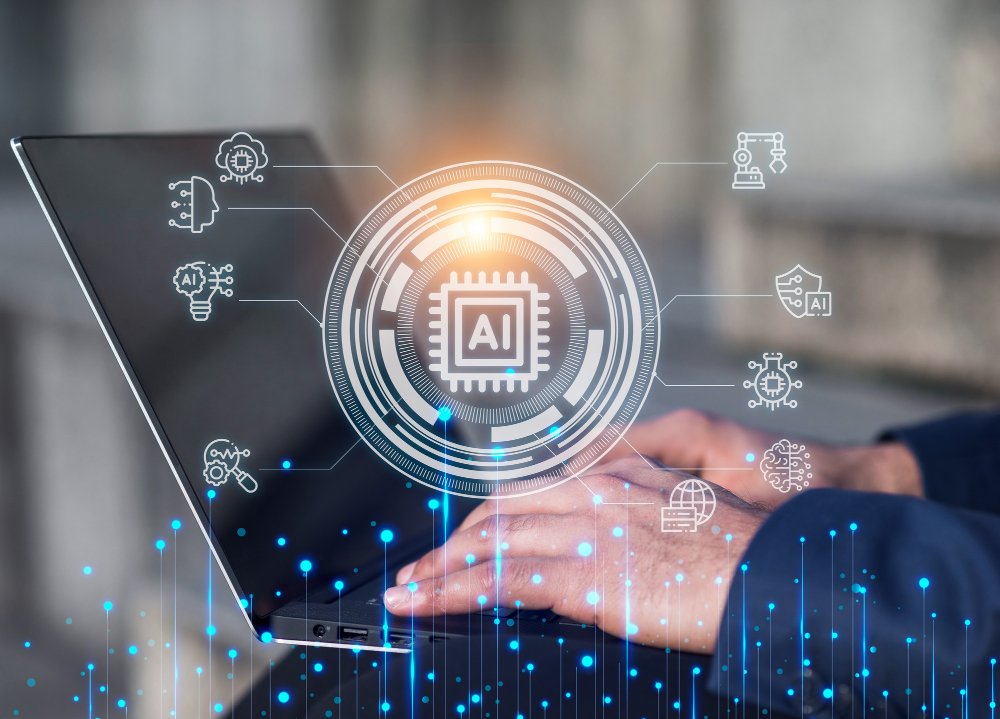In recent years, deep learning, an artificial intelligence field, has been the primary force underlying amazing technological advances.
Deep learning is actively implemented for different applications, including medical care, finance, text analytics, environmental monitoring, cybersecurity, speech recognition, manufacturing, and many more. However, perceiving the constant changes and fluctuations in actual-life scenarios and data, developing a suitable model is challenging. Furthermore, a lack of fundamental insight turns deep learning algorithms into black-box devices, impeding standard-level growth.
With 65% of firms hoping to employ machine learning admitting that it plays a part in improving decisions and 74% considering artificial intelligence and machine learning as game changers, these advancements are not merely on the radar but are actually altering the environment of modern employment and industry.
This article explores seven exceptional deep learning applications in 2024, unveiling their power across diverse domains. These applications show that deep learning is not simply an ideal for the future but today’s reality, with infinite possibilities to influence society.
7 Leading Applications of Deep Learning Across Various Industries in 2024
1- Healthcare
Deep learning has the potential to substantially impact medicine. It is used to construct prediction models for a number of reasons, such as disease diagnosis, serious illness diagnosis, and medical counselling.
Deep learning is also being used to produce unique imaging processes like MRI and CT scanning reanalysis.
2- Chatbots
Deep learning is used to construct chatbots capable of replying to human questions in natural language. Chatbots are widely used in customer support, social media promotion, and client messaging services. They respond to human inputs automatically.
Chatbots may develop the ability to recognise the purpose of a user’s speech and provide a suitable response through a deep learning algorithm. It enables chatbots to have authentic and human-like discussions with users.
3- News Aggregation and Fraud News Detection
Deep learning is used for industry in news aggregation, which leverages deep learning algorithms to autonomously identify and extract news stories from webpages. It performs keyword-based searches and has further been employed to detect fake news.
Deep Learning enables you to tailor news to the personas of your audience. You may collect and filter news material based on social, physical, and economic characteristics and a reader’s personal preferences. Neural networks aid in the development of classifiers capable of detecting fraudulent and biased news and removing it from the feed that you receive. They also notify you about potential privacy violations.
4- Natural Language Processing
Deep Learning algorithms have transformed Natural Language Processing by automating the extraction of value from text. These algorithms have produced results on several tasks, such as queries, automated translation, and text categorisation.
Deep Learning-based NLP addresses numerous issues associated with understanding human speech by instructing machines to deliver appropriate responses based on linguistic inputs.
5- Virtual Assistants
Virtual assistants are software applications designed to perform tasks typically carried out by humans. These digital helpers are equipped with a shared language and have the capability to perform functions like managing appointments, sending emails, and setting alarms. The integration of deep learning is pivotal as it empowers computers to glean insights from data, thus enabling virtual assistants to understand user needs and respond accordingly, making their interactions more effective.
6- Entertainment
Deep learning is increasingly employed in the entertainment sector to develop realistic three-dimensional characters while improving the quality of the visual effects. One of the deep learning algorithms used in everyday life is entertainment.
Deep learning was utilised to create authentic water models in Disney’s animated feature. Deep learning algorithms were also used to create the special effects used in the film. It is also used to generate captions and add audio to silent films.
7- Robotics
Deep learning algorithms have recently been utilised extensively in the robotics sector, allowing robots to obtain knowledge and fuel their capabilities automatically. It enables robots to enhance their work efficiency without the need for human involvement. It has been used to make it possible for robots to travel in unfamiliar areas autonomously, recognise and grip things, and communicate with humans.
Wrapping Up
To summarise, the use of deep learning algorithms has a significant and transformative influence across a wide range of fields. These seven applications demonstrate the adaptability and power to tackle complicated issues and develop technology.
As deep learning evolves and pushes beyond the limits of what is achievable, it is critical to recognise the importance of universities in determining this field’s future. Courses such as the IIM AI and ML Courses, given by top universities, are preparing the next generation of experts with the skills needed to capitalise on the opportunities offered by deep learning.
In addition, to advance in the Artificial Intelligence domain and stay at the forefront of the AI revolution, take part in the AI for Business Leaders Executive Course. Programmes like the Executive Programme In AI For Business, provided by Imarticus, give aspirants a solid foundation in artificial intelligence and machine learning, helping them prepare for the future!

